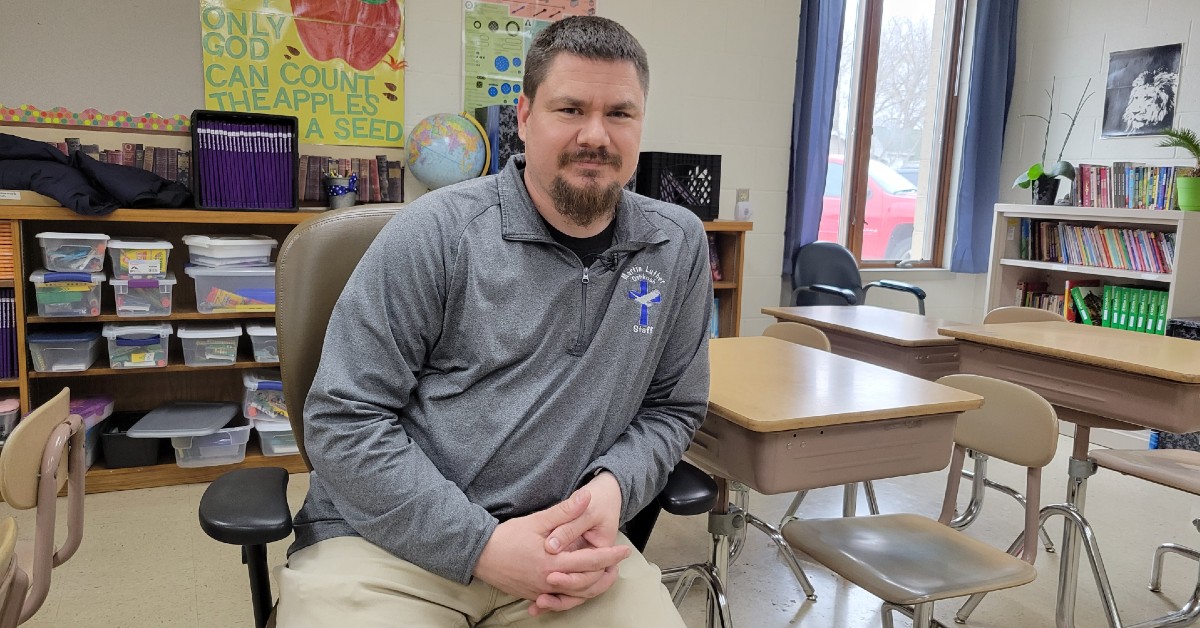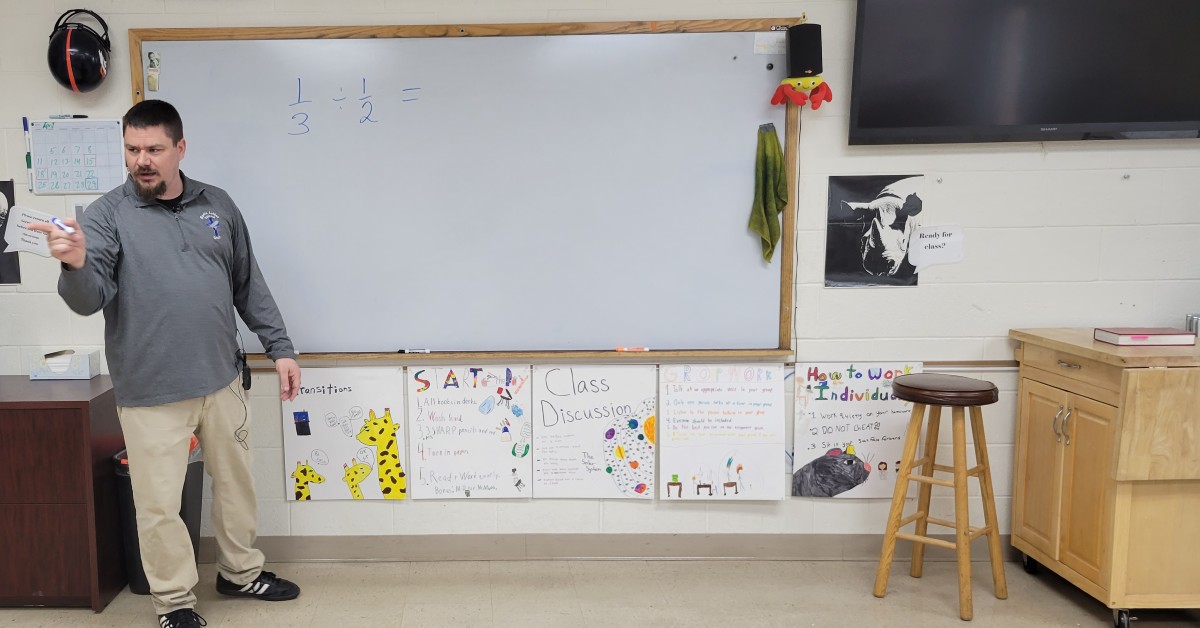While standing in front of his grade-school math class, Greg Martin was silenced by a stroke.
It came out of nowhere.
“It was really probably the first time since third or fourth grade that I didn’t have the words to explain a division problem,” Martin says. “I could see the problem, I could understand it in my mind, but I could not get the words out to explain it. I knew something was wrong at that point.”
Fifth-grader Paxton Schlenske realized something was wrong, too. He was in Martin’s classroom at Martin Luther School in Oshkosh on that day in early September 2021.
“It just happened to be near the end of the class, so I was able to dismiss the class and they were going to lunch, so I was able to get that out,” Martin says.
Instead of going to get lunch, Paxton went to the principal’s office to get help.
Martin also went to the principal’s office. Steve Hennig, the principal, saw that even though Martin was calm and alert, he couldn’t speak in phrases, couldn’t string together words, couldn’t comprehend reading – all warning signs of stroke. Hennig immediately called 9-1-1.
Martin was evaluated at the emergency department at Aurora Medical Center in Oshkosh, then rushed to the Comprehensive Stroke Center at Aurora BayCare Medical Center in Green Bay, which offers 24/7 neurointerventional care.
Shortly after Martin arrived at the Green Bay hospital, Dr. Gerald W. Eckardt, an endovascular and cerebrovascular neurosurgeon with BayCare Clinic Neurological Surgeons, performed a procedure to dissolve the blood clot that caused the stroke.
“Time is the most important thing, to get the person to the hospital,” Eckardt says.

Martin is in his late 30s, a reminder that stroke can occur at any age.
“Turns out I have a heart defect that I didn’t know about. The heart defect really caused it,” Martin says of his stroke.
Dr. Armaan Carrigan Shaikh, an interventional cardiologist with Aurora BayCare Cardiology, used an echocardiogram, or ultrasound of the heart, to diagnose Martin’s genetic heart defect. That condition – apical hypertrophic cardiomyopathy, or apical HCM – causes a thickening of the walls of the heart’s main chamber. The condition created a small pouch in the bottom of the heart, in which the blood clot formed. From there, the clot traveled to Martin’s brain and caused the stroke.
Martin received speech therapy in Oshkosh for two months after the stroke.
“It was really tough,” he says. “One day, my therapist said, ‘OK, here’s some math problems,’ and I’ve been a math teacher my whole career and I couldn’t do the math problems. It was just the language piece. For me, it was 43 plus 55 or whatever, a simple problem, really, but I had to read the number, translate that number, remember the processes, put it down on paper, and all of those things, every step of the way, took more time and more concentration.”
Martin returned to the classroom on a limited basis just after Thanksgiving in 2021.
“I was really blessed to be teaching here, where I could start off with teaching one class. That worked out really well for me,” he says. “Then I could pick up one more class and one more class until eventually my therapist said I’m not learning anything from her. For me, my therapy was coming to school and teaching the kids. The more language I used, the more I was getting better.”
Martin returned to full-time teaching just before Christmas in 2021, but challenges remain. He’ll likely be on blood thinners for life because of his genetic heart defect.
“I’m recovering. Still now,” Martin said almost seven months after his stroke. “(My students) know that I get tired during the day. It’s a lot of work to talk all day. They help me out, spellings of things when I’m writing on the board. They’re patient, and they correct my spelling.”
Martin is still learning – and teaching – about stroke, too.
“What I’ve learned about stroke – since I’ve had one – is the response time is critical. The sooner that you notice those symptoms, the easier the recovery can be,” he says. “I think everyone should know and recognize the symptoms of a stroke so that we can get medical care as soon as possible.”
